Parliament In The Budget
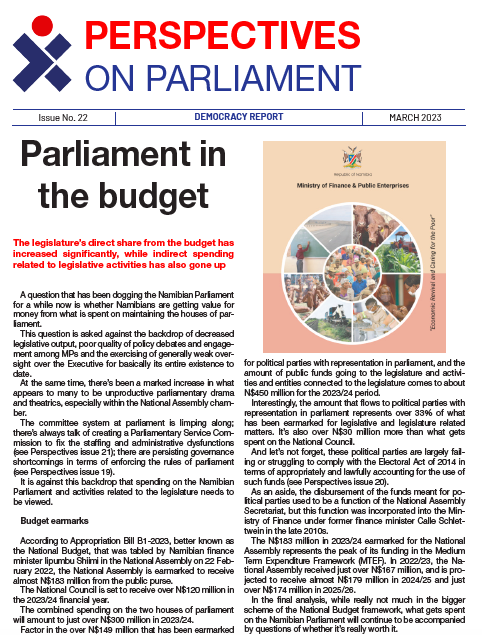
The legislature’s direct share from the budget has increased significantly but are Namibian taxpayers getting value for their money?
Investigating Procurement

In the light of recent procurement scandals, it’s time to give teeth to the procurement system’s investigative capabilities.
Parliament’s Agenda For Change
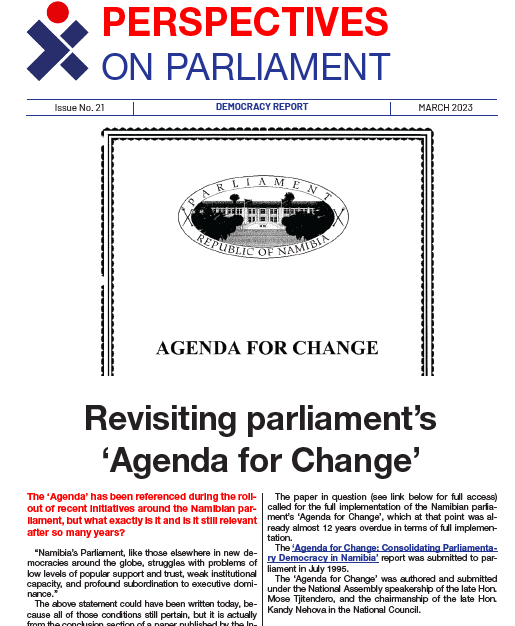
Parliament’s Agenda for Change report dates back to 1995. The ‘Agenda’ has again been referenced during the rollout of recent initiatives around the Namibian parliament, but what exactly is the ‘Agenda for Change’ and is the report still relevant after so many years?
Changes To Electoral Law Looming
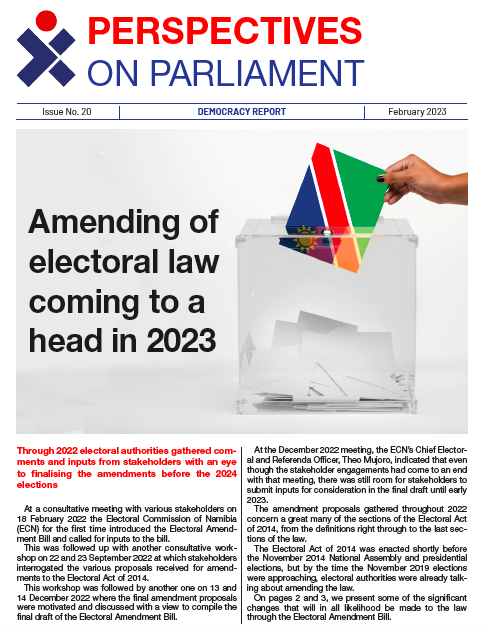
Throughout 2022, electoral authorities gathered comments and inputs from stakeholders with a view to parliament amending the Electoral Act of 2014 before the 2024 national elections.
Political Parties Failing To Account For Funds
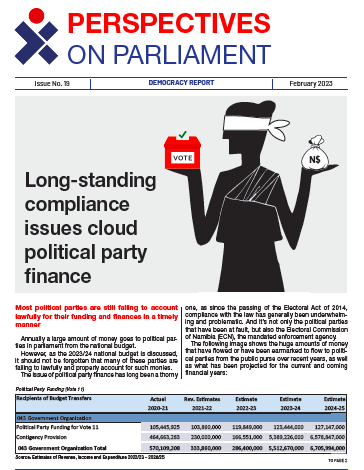
As the 2023/24 national budget is tabled in the National Assembly, many of the political parties in parliament are failing to lawfully and properly account for their finances.
Concerns Rising Over MPs’ Asset Registers
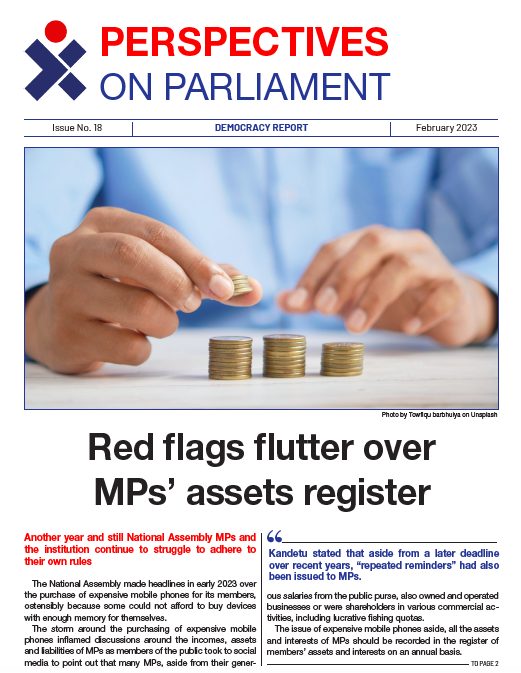
The failure of many MPs to declare their interests and assets in a timely and comprehensive manner continues to cast a pall over parliamentary proceedings.
CPBN In Crosshairs
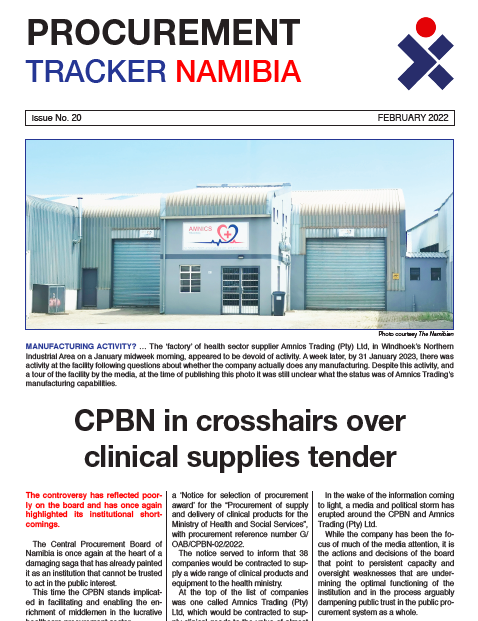
This edition of Procurement Tracker Namibia examines various contentious aspects of the clinical supplies awards by the Central Procurement Board of Namibia (CPBN).
Namibia QER Quarter 4 2022
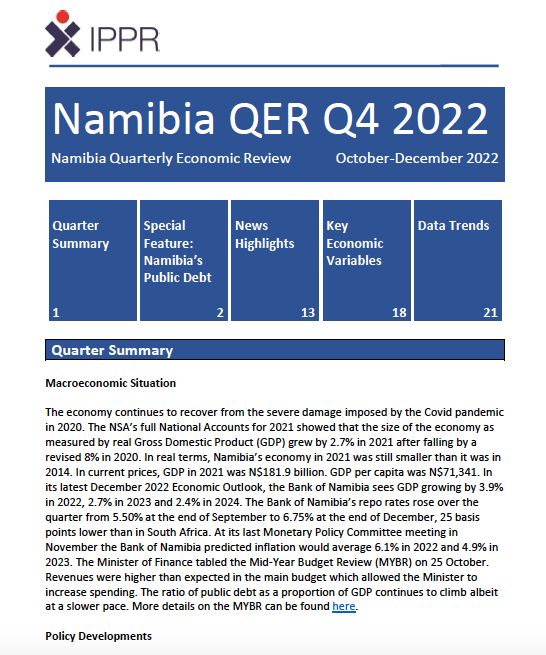
This edition of the IPPR’s Quarterly Economic Review asks if Namibia’s public debt is sustainable. We review the latest debt figures and also call for the Ministry of Finance to publish “a comprehensive and detailed account of Namibia’s public debt as part of the national budget”. In addition, the QER includes the usual data on […]
Thinking About Data Protection
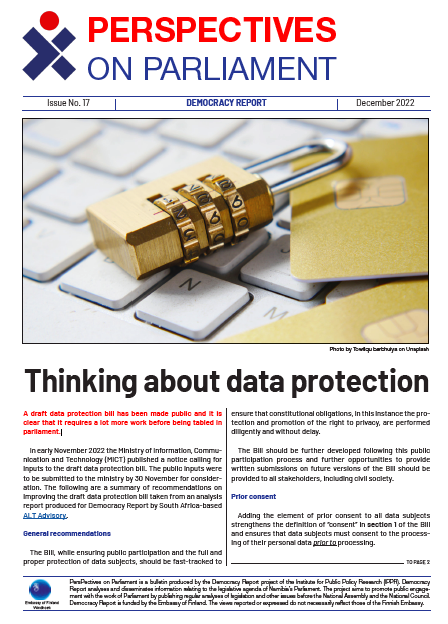
A draft data protection bill has been made public and it is clear that it requires a lot more work before it should be tabled in parliament. This Perspectives on Parliament bulletin includes both IPPR and Legal Assistance Centre commentaries on the bill – which have been submitted to the Ministry of Information and Communication […]
Public Trust In Parliament In Decline
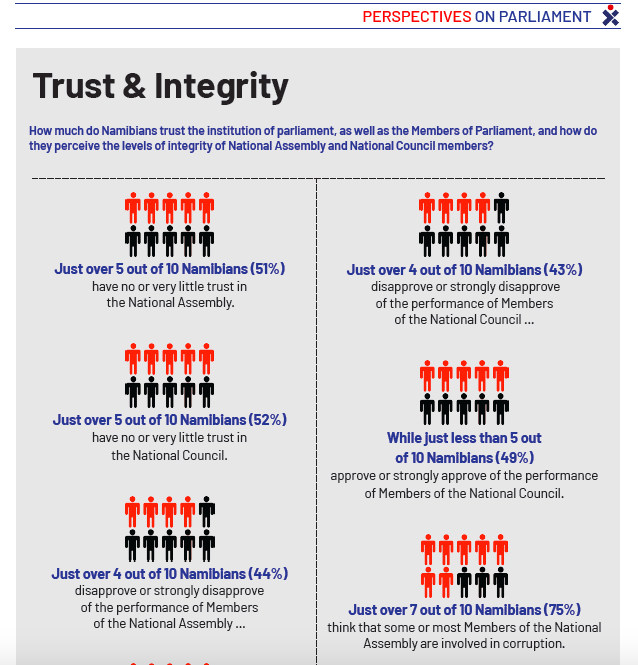
Public perceptions of the Namibian Parliament continue to trend towards the negative – reflecting a broader decline in trust in political and government institutions over the years.

